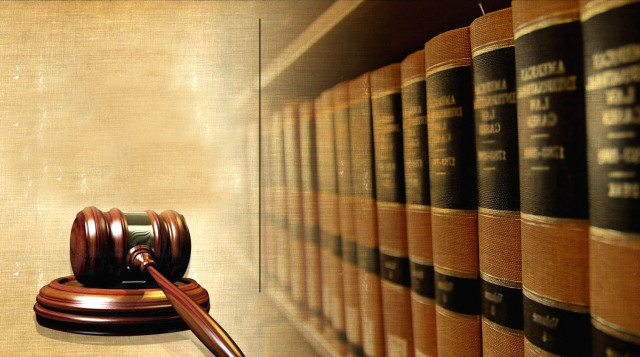In the name of religion: 32 blasphemy cases in Sindh
Not only the accused, but the legal community also faces the ire of vigilantes.

In the name of religion: 32 blasphemy cases in Sindh
While the Citizens Police Liaison Committee (CPLC) has a record of 11 blasphemy cases registered in Karachi from January to December 7, 2010, the Karachi police say they have not registered any case this year.
The Human Rights Commission of Pakistan (HRCP) knows of one incident in Karachi this year – a conviction in a 2006 blasphemy case. HRCP says a total of 24 cases and convictions have been recorded in Pakistan in 2010. Blasphemy cases in Sindh are believed to be less in number than in Punjab. HRCP director and activist IA Rehman told The Express Tribune that this is because, “Anti-Ahmadi sentiment is more prevalent in Punjab, where politics is also mixed with religion. The issue of Ahmadis in Punjab is where the blasphemy laws arose from.”
However, like Punjab, blasphemy cases in Sindh have had violent outcomes. Since 1986, at least three people have been murdered after being charged under the blasphemy laws, according to data compiled by the HRCP and the National Commission for Justice and Peace (NCJP). Jagdesh Kumar was killed in 2008 by colleagues at his workplace in Korangi, while Zafar Ahmad, from the Ahmadi community, was killed in Dadu in 2000. Anees Mallah, who was serving a jail term, was attacked by a mob of 200 people in the Sanghar prison on April 3, 2009. He was reportedly tortured before being shot dead. HRCP’s 2009 annual report quoted his brother as saying that he had been wrongly implicated. In March 2008, Mallah had crashed into a gate erected for a Milad event which angered the organisers, who implicated him in a blasphemy case.
According to the NCJP, three women have been accused in Sindh under the blasphemy laws. In 2009, Tabassum Malkana in Sanghar was accused of desecrating the Quran. In Karachi, Akhtari Begum was booked under Pakistan Penal Code Section 295-B in 2001 for claiming to be a prophet and Bushra Taseer was charged under Section 295-C in 1996 after a tailor alleged that she had given him cloth to stitch, which had a religious inscription on it.
A key issue in such cases is the lack of legal support and security for defendants and their legal counsel. Extra-judicial killings of those accused of blasphemy have taken place since 1990, but the legal community has also faced the ire. In 1997, Lahore High Court judge Arif Iqbal Bhatti, who had acquitted two Christians in a blasphemy case in 1995, was shot dead as he left the court.
Human rights lawyer Zia Awan says defending such cases “is a difficult job”. “We are living in a mad country. Even Islam allows people to defend themselves and so does our law. But the government should arrange for lawyers to defend those accused of blasphemy and provide protection to lawyers in such cases,” he told The Express Tribune. “Prosecutors of anti-terrorism courts recently went on strike for the same reason – to demand that they be provided security to do their job.”
IA Rehman says, “There are also professional complainants who accuse people of having committed blasphemy. Such people are present in Sindh too but in a smaller number.”
In May 2010, two Christian couples residing in Karachi were reportedly accused of blasphemy and went into hiding. According to the Asian Human Rights Commission, seven Hindus from the Bheemo Mal Megwar Para area in Mirpurkhas were reportedly arrested on blasphemy charges in August 2010 after an attack on August 23 by the area’s Muslim residents on a Hindu settlement.
Published in The Express Tribune, December 13th, 2010.



















COMMENTS
Comments are moderated and generally will be posted if they are on-topic and not abusive.
For more information, please see our Comments FAQ